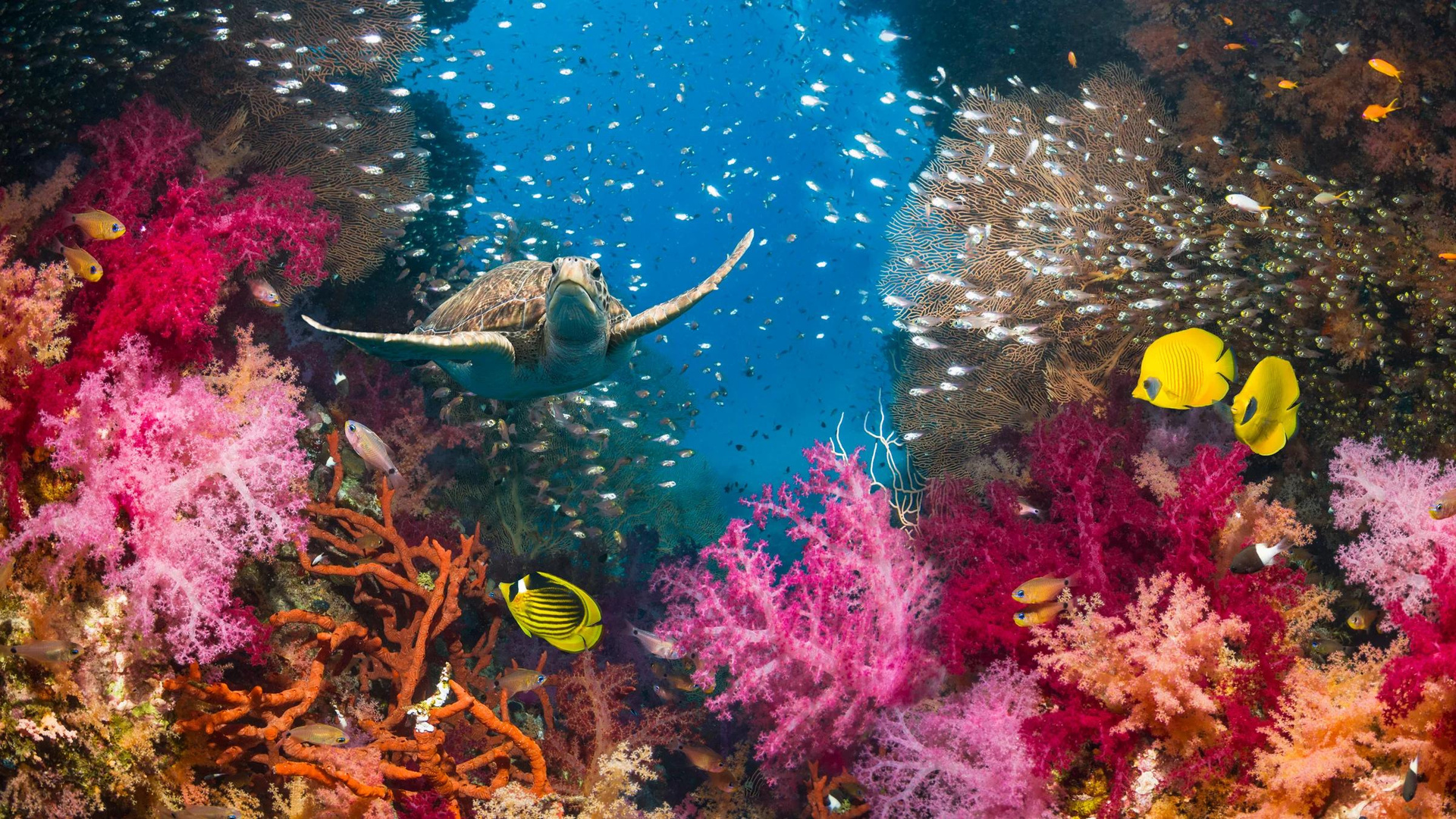Reef Guardians
We aim to raise awareness about coral bleaching and how it affects our economy and environment.
Did you know that coral reefs have a great impact on economy, as they are a $20 billion industry!
What is Coral bleaching?
Well, Coral reefs are transparent to begin with, so those striking vibrant colors aren't their actual color.
All of these colors originate from a unique relationship between coral reefs and the Zooxanthellae algae known as symbiosis, in which the two different species coexist for the benefit of either one or both. As a result, they are mutually dependent; the coral reefs provide the algae with a protective calcium carbonate shell to keep them safe from predators, and the algae in turn give the coral reefs the nutrients they need to produce their incredible colors.
Corals tend to expel the algae staying in their tissues when they are stressed due to a change in the conditions surrounding them, such as heat, ocean acidification, light, or nutrition, which causes them to lose their color and turn white.
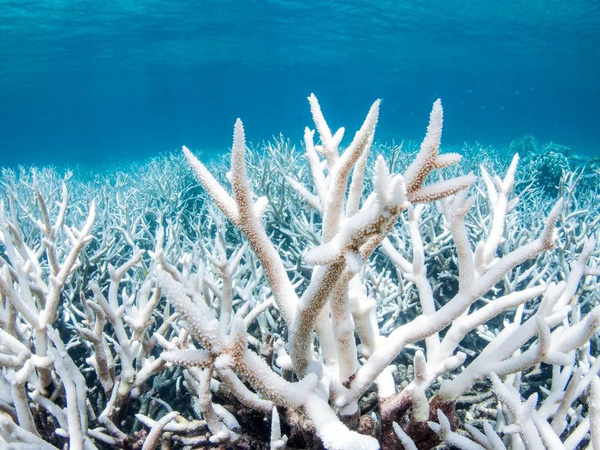
bleached corals
How serious is it?
According to Australian Institute Of Marine Life:
Higher sea surface temperatures have been linked in multiple studies to extensive coral bleaching; "mass" bleaching, which can cover hundreds of km or more, is caused by persistently anomalously warm water temperatures.
-In 1998 and due to the heat wave, there was a severe coral bleaching as 11% of the coral reefs surveyed were bleached, and up to 70% of the coral reefs died.
-In 2001-2002, 54% of the 641 coral surveyed were bleached, and 70% of the coral died.
- The first major bleaching of the northern Great Barrier Reef killed 29% of the reef's shallow water corals in 2016, when heat stress affected 51% of coral reefs worldwide.
- in the western Indian Ocean experienced bleaching; in the Seychelles, 69 to 99 percent of the coral was bleached and 50 percent of it was dead.
- In 2022, 43% (more than 60% of the community corals) of the surveyed corals were bleached
Most studies that examine coral response to coarse-grained global atmospheric-ocean circulation models predict that within the next 80 years few coral reefs will survive in tropical oceans, other indicates that it will be totally whipped out after 100 years.
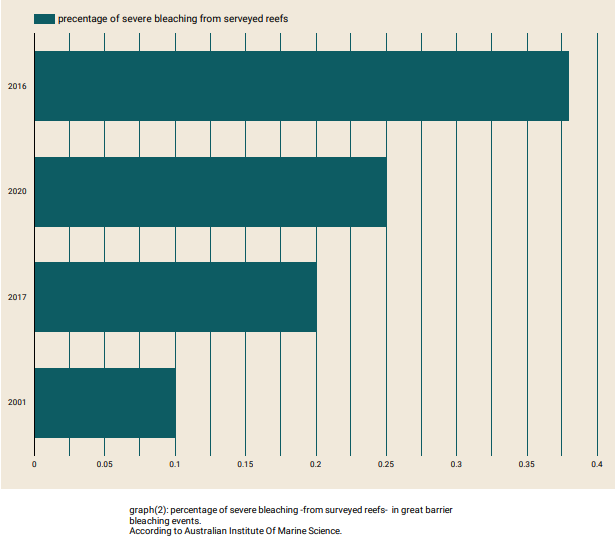
Why should we save coral reefs?
coral reefs are among the most significant ecosystems on the world. they contribute to preserving biodiversity and the life cycles of so many marine species,
It also serves as a source of anti-cancer, antibiotic, and other medications while protecting coasts from storms and erosion, absorbing and storing carbon and other pollutants.
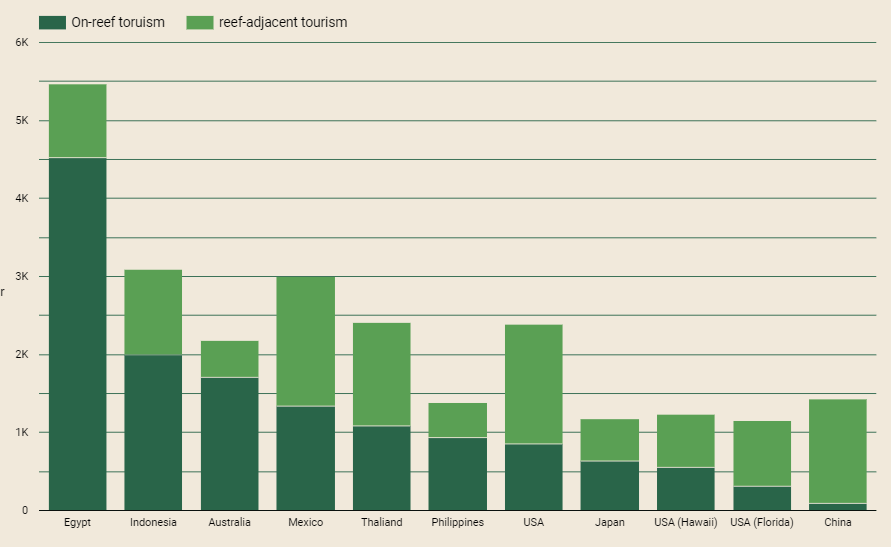
$ million/ year
Regarding the financial benefits, the on-reef tourist economy is worth $20 billion, and many coastal nations rely on it as a source of income. reef tourism will completely cease if coral bleaching continues at this rate, and nations like Egypt, Indonesia, and Australia will suffer economically.
How can you make a difference?
"Be the catalyst for change through your actions." The change starts with your action!
To solve the coral bleaching problem you can make a difference by changing your everyday habits by :
- Use transportation that is friendly to the environment:
Try to use public transit (such as buses and trains) more frequently than driving a car. If you're thinking about buying a car, go for a hybrid or electric model that uses less petrol. Utilizing these alternative forms of transportation can aid in lowering the amount of greenhouse gases released into the sky. Which contribute with Both ocean acidification and rising ocean temperatures
-Support Conservation Businesses:
Contribute to reputable businesses and initiatives that focus on coral reef conservation. These companies work to defend and restore coral reefs through research, advocacy, and
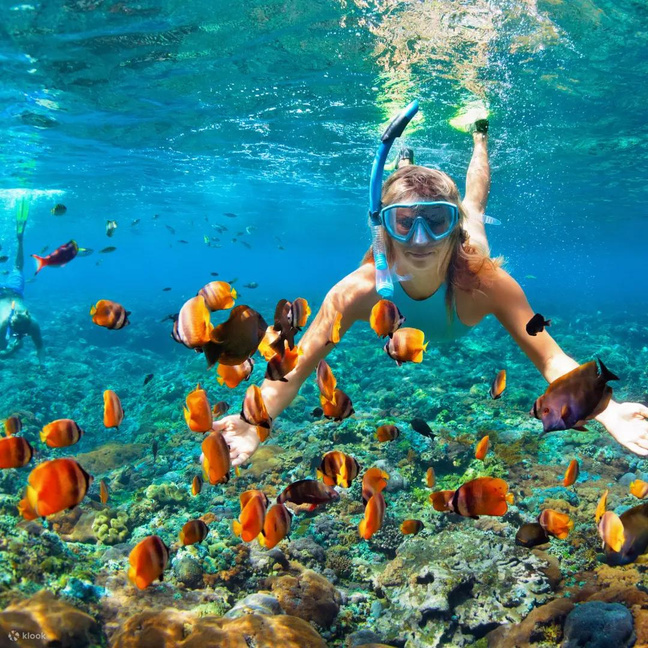
conservation efforts on the lot.
- Dive responsibly when you visit coral reefs:
Avoid touching reefs or anchoring your boat on the reef. Contact with the reef will damage the delicate coral animals, and anchoring on the reef can kill corals.
- Wear a reef-friendly sunscreen:
Several common sunscreen ingredients, including oxybenzone and octinoxate, have been shown to be toxic to coral reefs
-Minimize pollution:
Pollution, including plastic waste and chemical runoff, can negatively harm coral reefs.
- Save energy at home and at work.
- Recycle and dispose of trash properly.
- Support sustainable seafood: Overfishing can harm coral reef ecosystems.
- Volunteer! If you live near the coast, volunteer in local beach or reef cleanups. If you don’t live near the coast, get involved in protecting your local watershed. Find an opportunity near you.
-Raise awareness:
Educate yourself and others about coral bleaching, its reasons and its aftermath. Share information with friends, relatives and your society to raise awareness of the value of coral reefs and the need to defend them. Share our website so everyone could understand what coral bleaching is.
Contact
Karen Safwat
Malak Khaled
Esraa Ibrahim
Students at Alexandria STEM School in Egypt.
